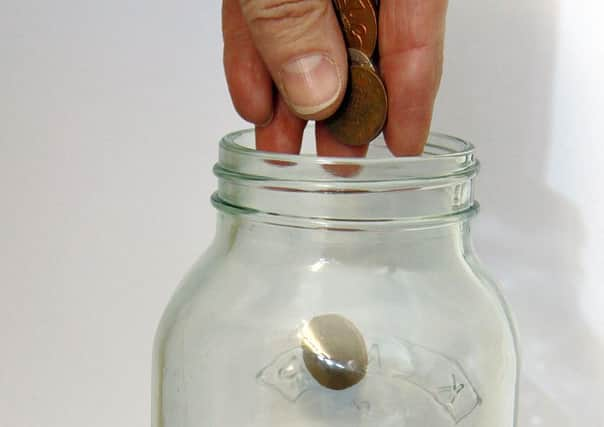How to spring clean your household budget


But do most of us actually bother to budget, even though we know we should? Well, research from insurance group Royal London found that one in three respondents say they don’t plan their spending at all. Let’s find out what can happen if you don’t budget – and how you can do it in a way that works for you.
The main way a budget can help you manage your money is that you’ll be able to see what you’ve got coming in and what you’ve got going out. If you’ve got a lot of bills and debt repayments, it can be difficult to keep track of all of these. And if you forget a couple of them, you might constantly find yourself at the end of the month without enough cash to cover everything.
Advertisement
Hide AdAdvertisement
Hide AdBut that’s not all a budget can do for you. It can also mean you’ll find it easier to cope with any unexpected bills. For example, if your car broke down or the washing machine packed in, you might struggle to afford this if you were on a really tight budget. If this was the case, you might think the only option would be to turn to borrow money to pay the bill.
And if you’re in this situation, you’re not the only one. In the Royal London study, just 37% say they could cover an unexpected bill of £300 from their own money. The rest would have to dip into savings, use an overdraft or cut back on essentials to get by.
After the respondents starting using budgeting tools to keep track of their spending, the number who could pay an unexpected bill themselves rose to 41%. This shows that a budgeting tool can help you stay in control.
The Royal London research found that a budgeting tool could encourage you to stay on track with a budget. A budgeting tool can be as basic as just a pen and paper or if you want to get more technical, you can get a specialised mobile app or a spreadsheet. The apps used by people in the Royal London research were Toshl and Spending Tracker – both have free versions.
Advertisement
Hide AdAdvertisement
Hide AdWhichever method suits you, start by recording everything you have coming in every month. This includes your wages and any benefits you get. Then list all of the bills and other expenses you have to cover and when they need paying.
If you’re really struggling to cope with your finances because of debt repayments, putting together a budget is the first step to getting back control of your money. That’s because, if you speak to a debt advisor, one of the first things they will do is work with you to put together a budget detailing everything you spend and everything you earn – so you can see how much you can afford to put towards your debts.
Debt Advisory Centre: 0161 871 4881
Debt Advisory Centre: 0161 871 4881